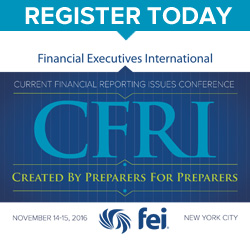The ability to process and interrogate vast amounts of data is helping automate the audit in ways that were unimaginable a decade ago. This in turn is changing how, where and when our work gets done. At the same time, it has driven home the point that skilled, experienced auditors are the key differentiator between a number-crunching, computer-driven audit and one that is rooted in quality and delivers insights. It will allow automation and standardization of more routine tasks, giving our people more time to focus on those areas requiring the most judgment. In other words, human auditors provide critical judgment where computers cannot.
What’s driving change?
Much of the technological evolution is being driven by the standardization of data used by companies as well as finance operations moving to the cloud. As companies shift their operations from on-premise solutions to cloud-based SaaS platforms, the audit is moving with them. The real-time impact of this in terms of capabilities is tremendous. Data can be accessed minute-to-minute, even second-to-second and anywhere in the world. Journals and ERP systems can all be analyzed in an ongoing, deep manner. As the testing is conducted year-round, the process is smoother and insights are more meaningful.
New technology also allows for a more robust and agile ongoing audit. With tools enabling data auditing and visualization, in some cases, large populations of data can be queried and analyzed instead of analyzing samples of transactions. Auditors can identify and address issues more quickly. By examining huge volumes of data in real-time, auditors can give insights into a company as a whole without having to wait until close. Artificial intelligence can enable the study of trends and anomalies with greater speed and accuracy. In short, the audit has the ability to operate at the speed of today’s business.
Auditors already have proprietary systems that exploit some of these capabilities. Electronic workpapers were utilized by auditors starting in the early 2000s. This technology standardizes workflows and ensures consistent and efficient audits through real-time monitoring of the audit plan.
 Data ingestion, visualization and auditing is now handled through programs which allow for deep analysis and insights, and create the aforementioned opportunity for more focus and time on the judgmental aspects of the audit. Web-enabled communication and collaboration tools expedite exchanges between audit teams and clients all using different PCs, tablets and smartphones.
Data ingestion, visualization and auditing is now handled through programs which allow for deep analysis and insights, and create the aforementioned opportunity for more focus and time on the judgmental aspects of the audit. Web-enabled communication and collaboration tools expedite exchanges between audit teams and clients all using different PCs, tablets and smartphones.
Enhanced document management now allows auditors to provide assessments anywhere, any time. Because of the process integration between systems, client teams often spend less time handling manual tasks and documentation efforts in relation to the audit. These tools are constantly evolving and improving to add features and to boost performance, clarity and perspectives as technology allows. These advancements, particularly with machine learning, will allow for deeper engagement with clients’ core data across the board.
Benefits of innovation
Companies derive real insights from these changes and as an auditor that brings a true sense of reward and accomplishment.
In many ways, innovation has made auditing a more dynamic and rewarding profession. It’s allowed us to become more relevant in response to stakeholders’ requests for us to provide insights beyond the audit. By automating much of the routine, non-judgmental work that used to dominate hours of time, auditors get to focus on thought-provoking challenges and insights. As a result, they find themselves doing more interesting work earlier in their careers -- ultimately making their work more enjoyable. As the cycle of the audit is year round, there is steadier workflow and better quality of life. “Flexible” schedules are now actually able to be flexible.
The ability to understand and manipulate these sophisticated programs has also become an integral part of the job. For instance, 12% of PwC hires last year were from a STEM (Science, Technology, Engineering or Mathematics) education background, and that is only expected to rise going forward. Auditing needs the brightest, most diverse minds in a field now dynamic with possibilities and challenges.
All of these changes have an impact on the audit competitive environment. With more time to spend on judgment and analysis, firms that attract talent strong in those areas will be best able to serve their clients and the capital markets. In some ways, this is how it has always been: firms with the most talented, effective employees win the best work. Other firms then need to raise the bar.
Ultimately, that’s good for everyone. Technology is allowing a huge shift in how and when audits are conducted and the data presented. The insights are deeper as auditors are able to perform meaningful analysis in a more automated and uniform fashion. Clients are better served through more dynamic and directed insights and a timelier and smoother audit process. The audit profession is stronger and even more capable of helping to promote a vibrant economic system. All as the auditor’s judgement has become even more important.
The audit of the future - it’s about more than just new technology. Join PwC’s Bill Brennan and Mike Baccala at this year’s CFRI conference where they will present “Audit of The Future: A Look at How Financial Reporting is Changing - and What Attendees Can Do About It.” See how new people strategies, approaches AND technology are transforming the audit, and how you can prepare.
Maria Castañón Moats is the U.S. Audit and Assurance Leader at PwC.